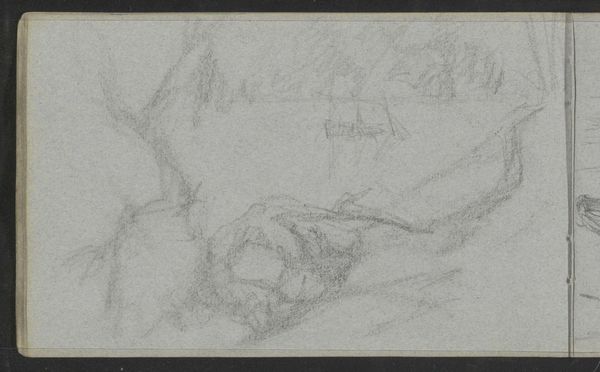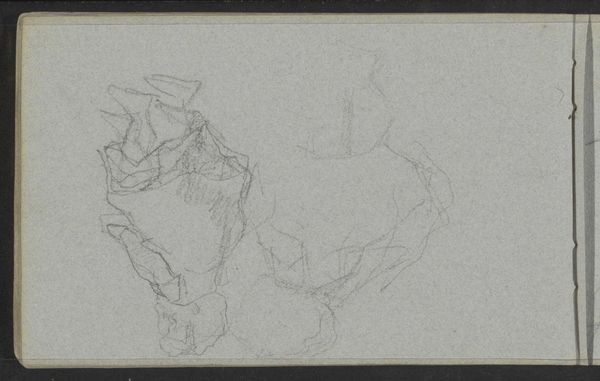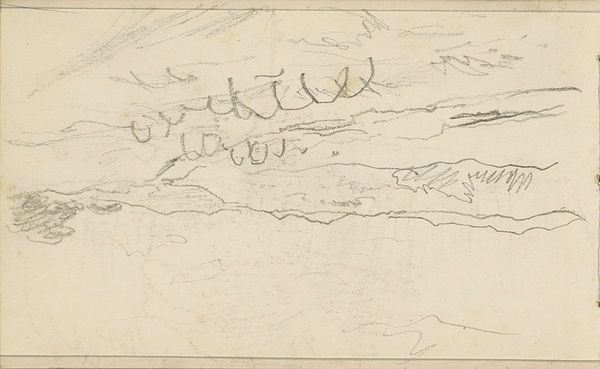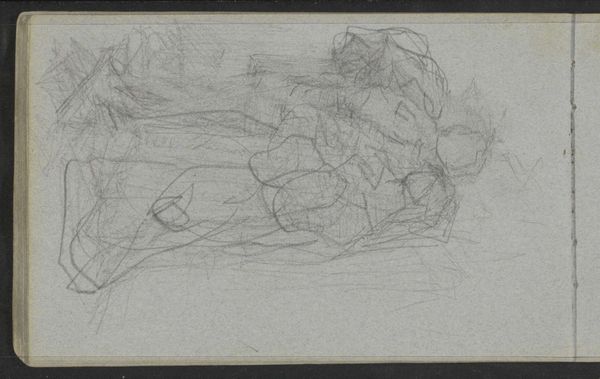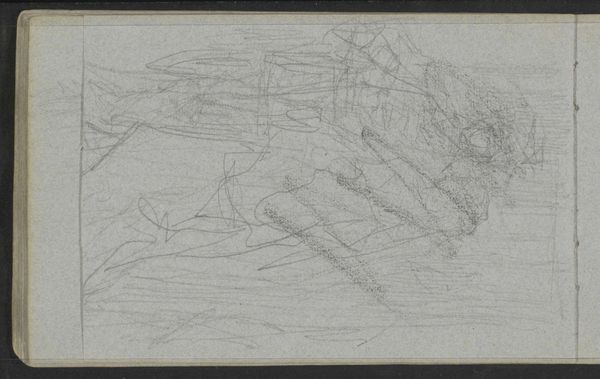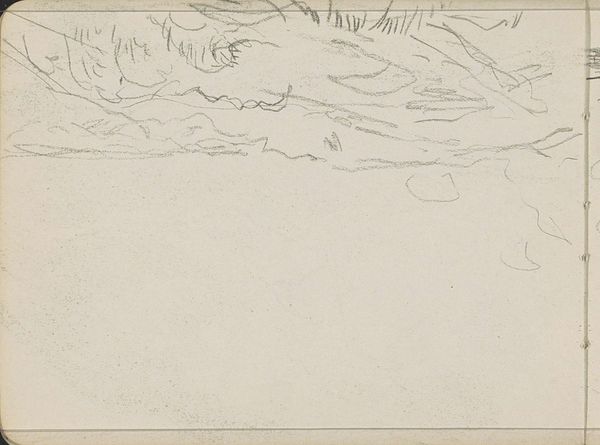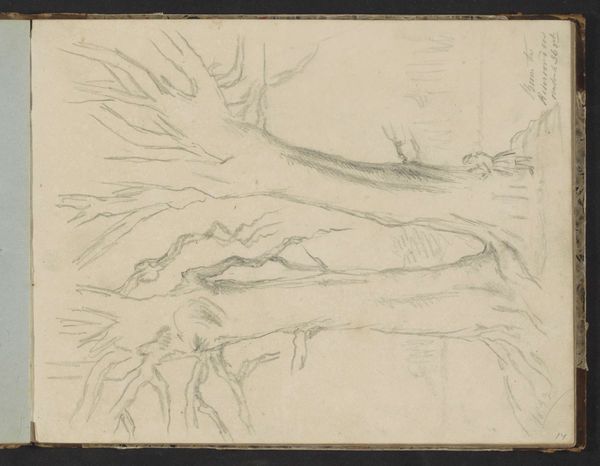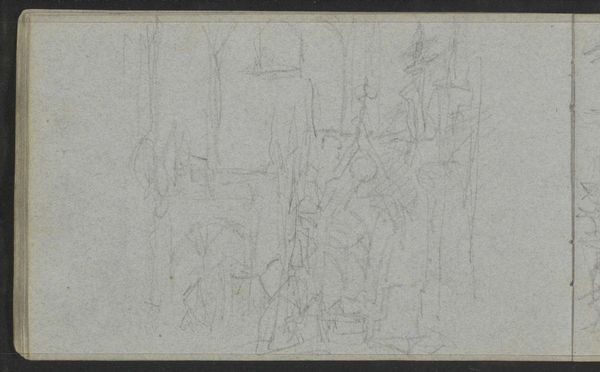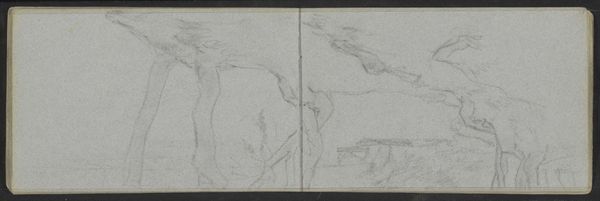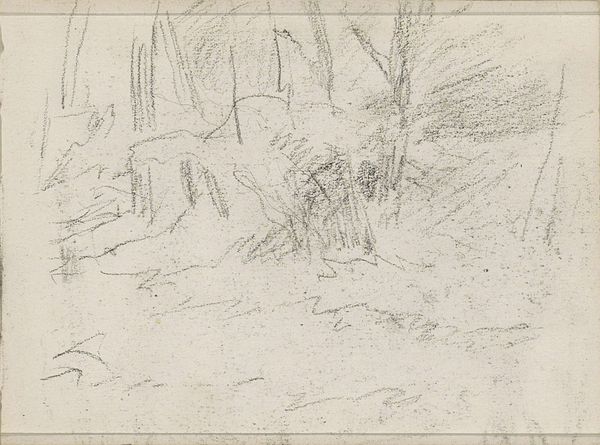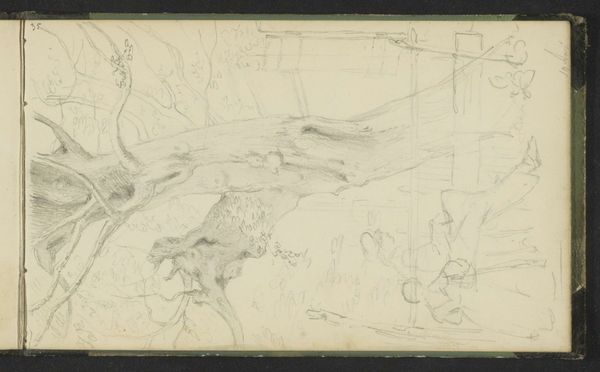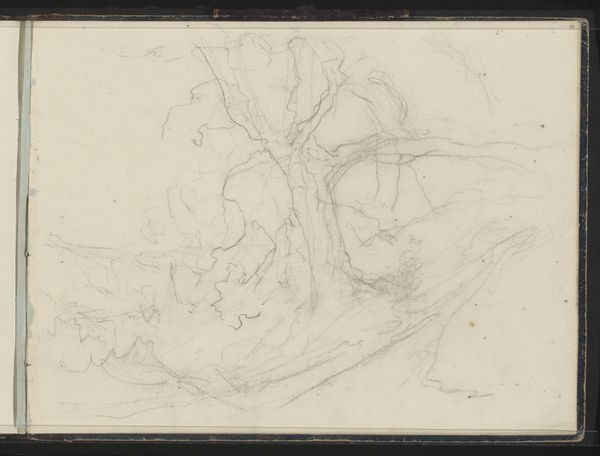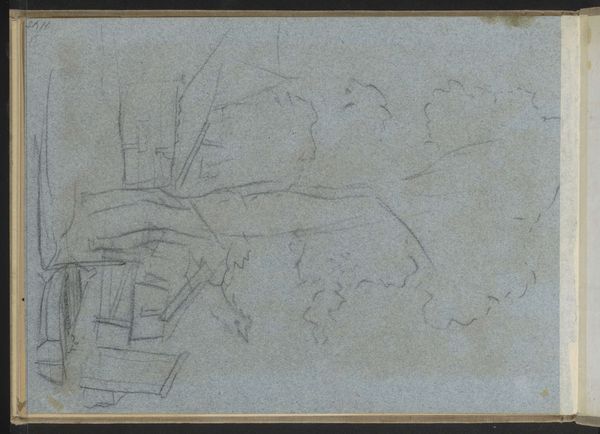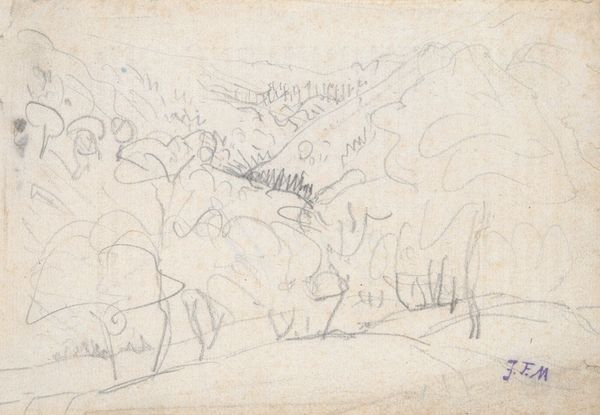
drawing, paper, pencil
#
drawing
#
toned paper
#
impressionism
#
sketch book
#
incomplete sketchy
#
landscape
#
paper
#
personal sketchbook
#
sketchwork
#
ink drawing experimentation
#
pen-ink sketch
#
pencil
#
line
#
sketchbook drawing
#
storyboard and sketchbook work
#
sketchbook art
Copyright: Rijks Museum: Open Domain
Curator: Matthijs Maris' "Landschap," dating from 1849 to 1917, is a deceptively simple sketch. Executed in pencil and ink on paper, it feels almost ephemeral. Editor: My immediate reaction is… melancholic. It’s just lines, barely there, but they suggest a landscape weighed down by something. A premonition of loss, perhaps? Curator: Interesting you say that. Maris often employed symbolism rooted in personal experience and societal shifts. The loose lines, the vagueness… they could signify the transience of life or the fading Dutch Golden Age. There are ship masts and yards; they seem almost entangled within the sketched scenery, which is rendered on toned paper. It’s a cultural memory, of a different epoch, of nautical power, but shrouded, indistinct. Editor: Right. We're also dealing with the 19th century, and the industrial revolution. Maris could be commenting on the disruption of traditional landscapes, the way human progress scars the natural world. Think of the pre-industrial Dutch Romantic landscapes versus the post-industrial realities. Curator: Precisely! The incompleteness enhances that. This isn't a finished product; it’s a sketch, an idea. It reflects the internal struggle and the fleeting nature of our perceptions. Consider how line work alone expresses so much, revealing the symbolic relationship to traditional drawing practices while forging something distinct and forward-looking. Editor: I agree. Looking at those broken lines… it's also speaking to social fragmentation. The traditional ideas and structures fading away to become something abstract and… potentially menacing. And look, here are what could be regarded as organic shapes in the foreground; do they appear to rise above the sea to take prominence or are they being dragged downward into its murky depths? Curator: Perhaps it’s both, depending on how we as viewers engage and resolve it in our minds. Ultimately, the artwork reminds us to actively search meaning rather than to passively find. Editor: Exactly, there are multiple interpretations. That incomplete sketch embodies the complexity of those transformations. It serves as a powerful reminder of the narratives that are etched, perhaps painfully, into our cultural landscape.
Comments
No comments
Be the first to comment and join the conversation on the ultimate creative platform.
